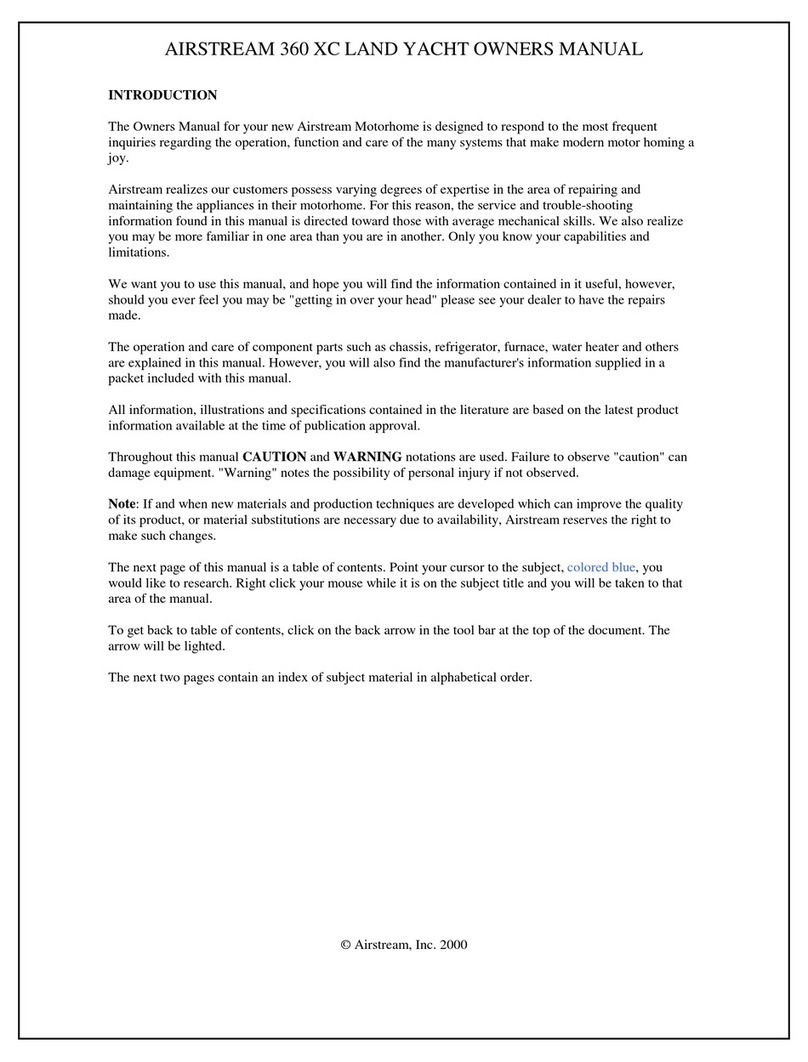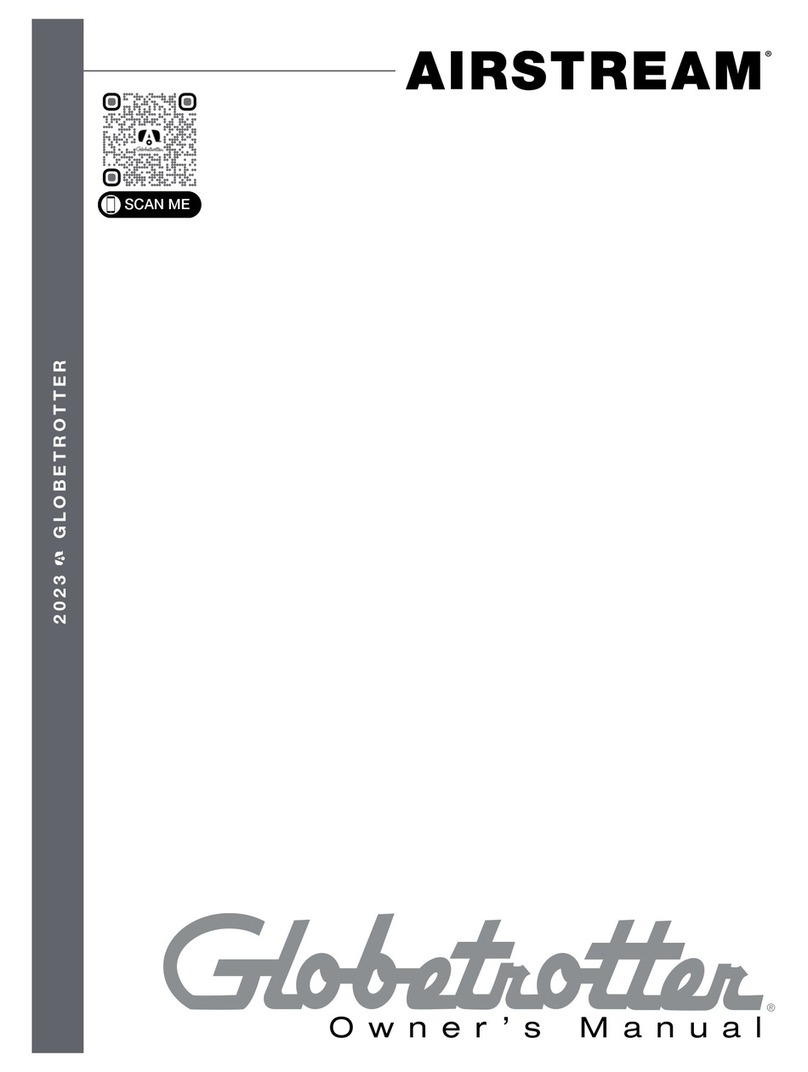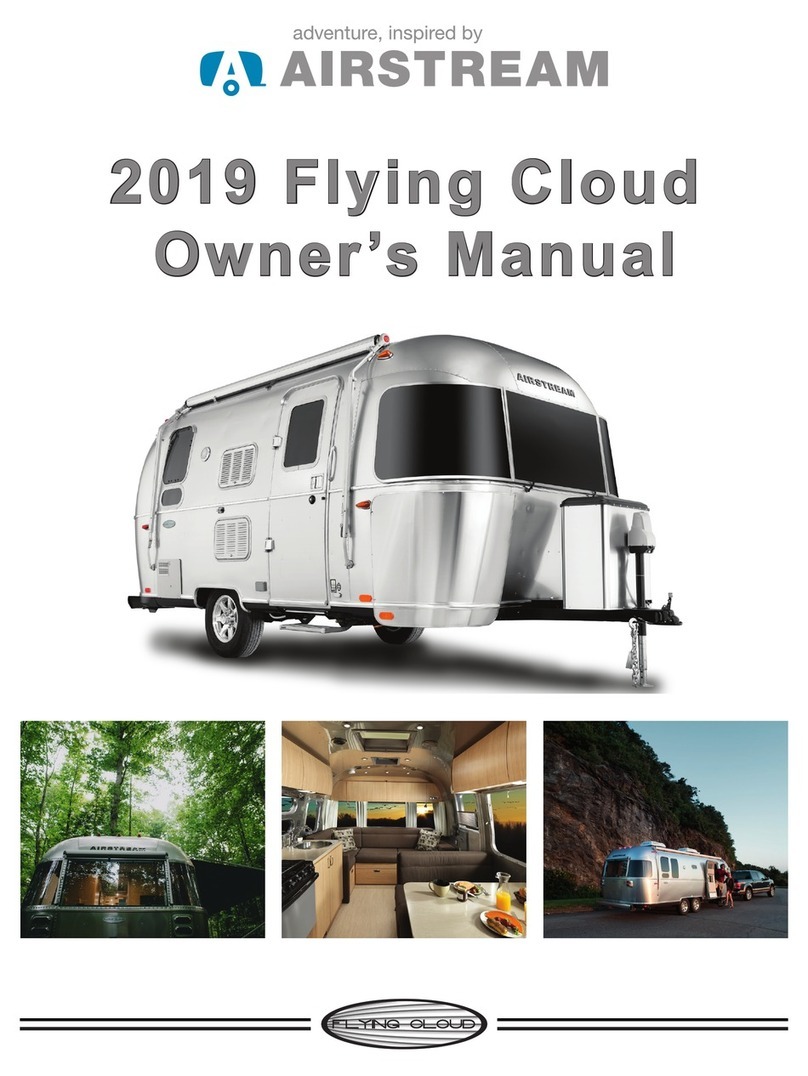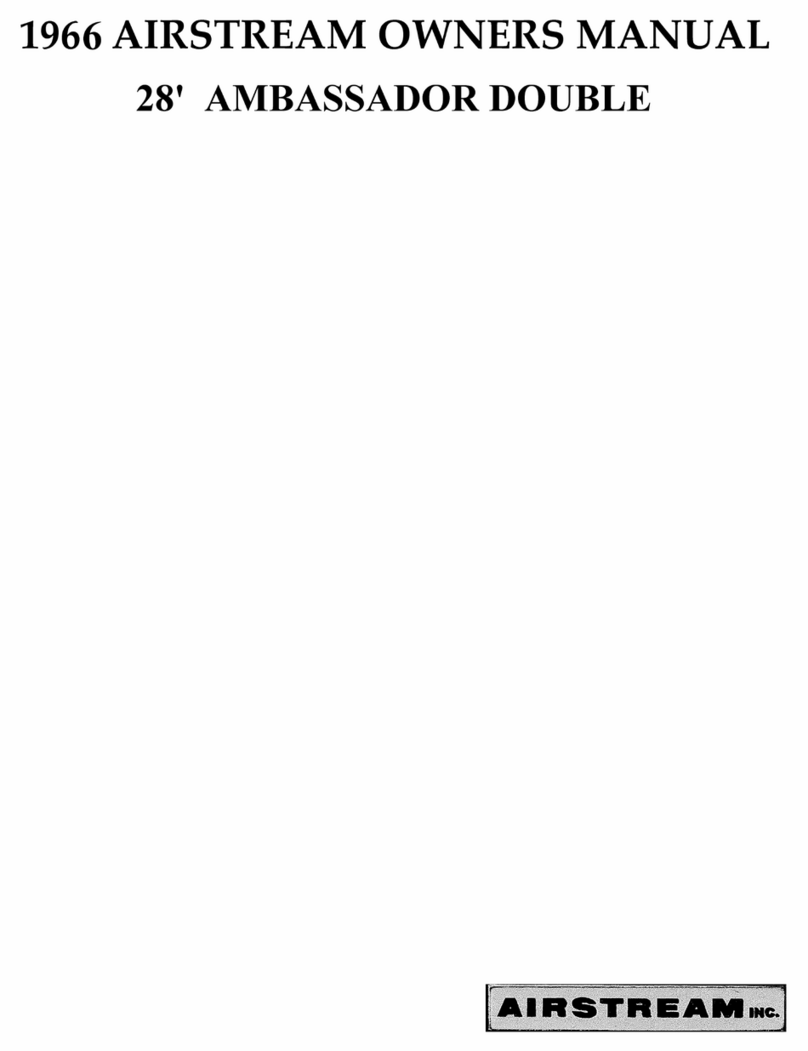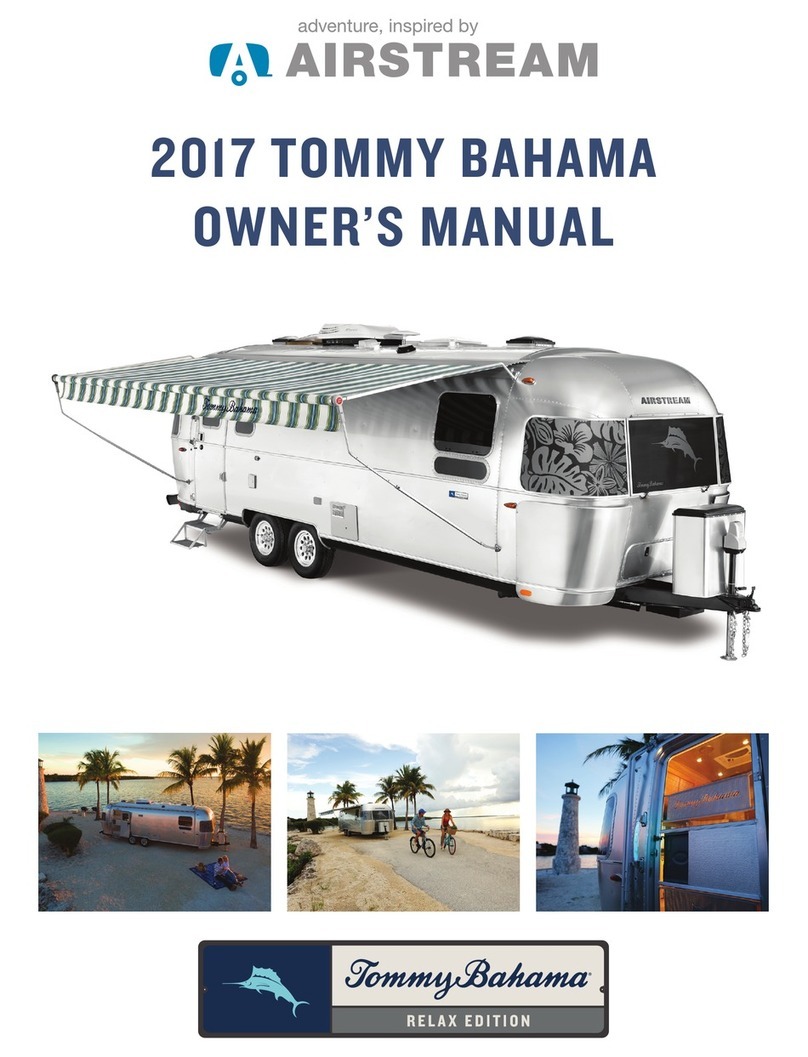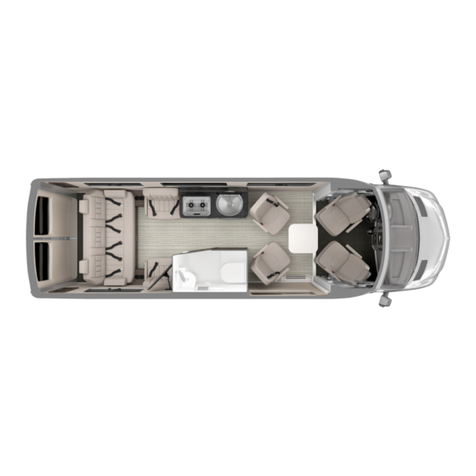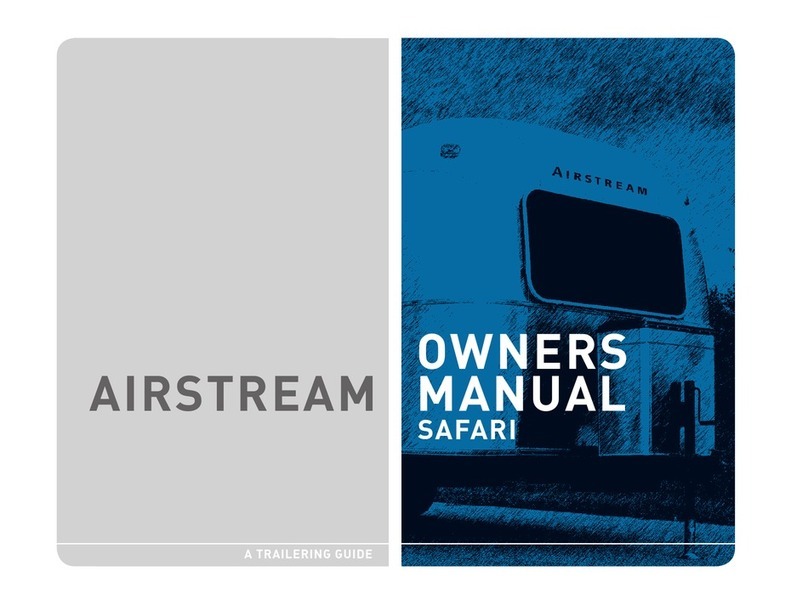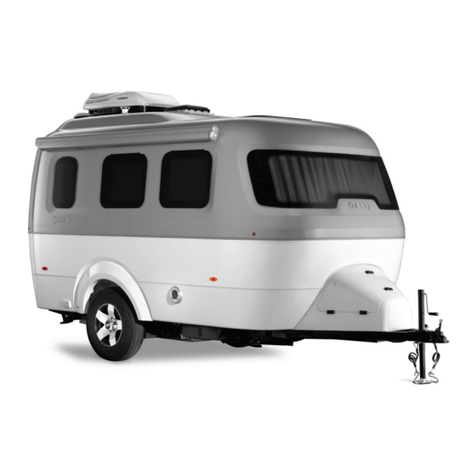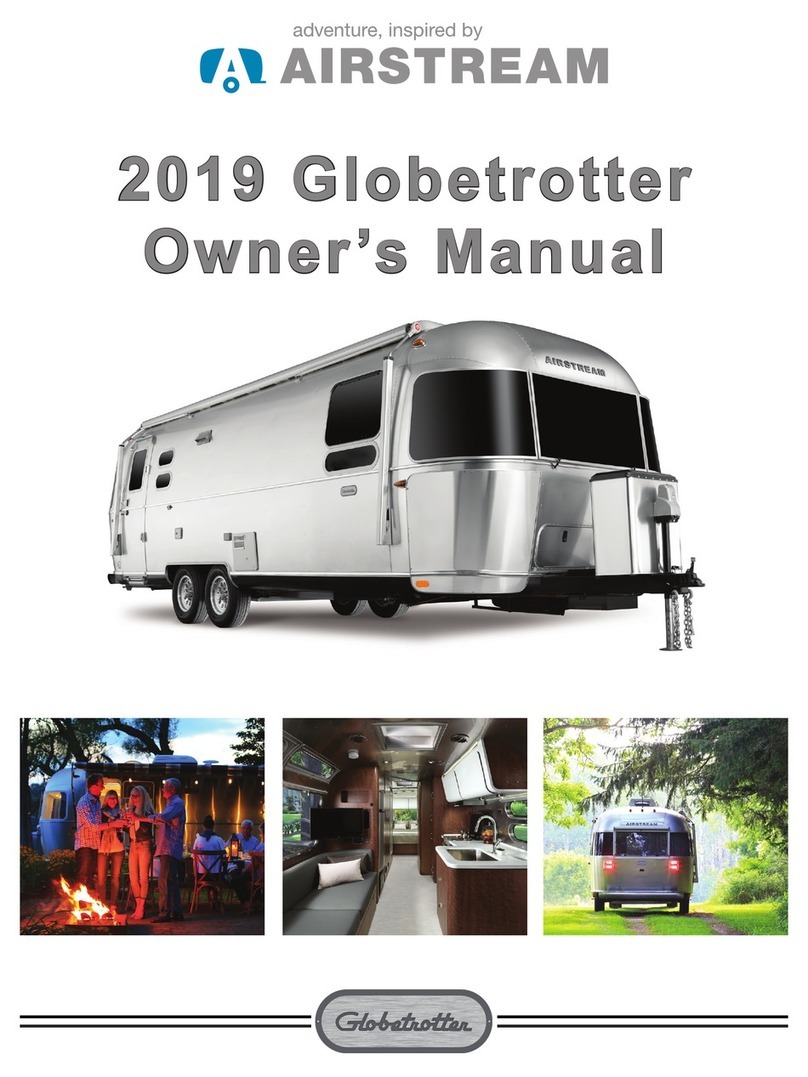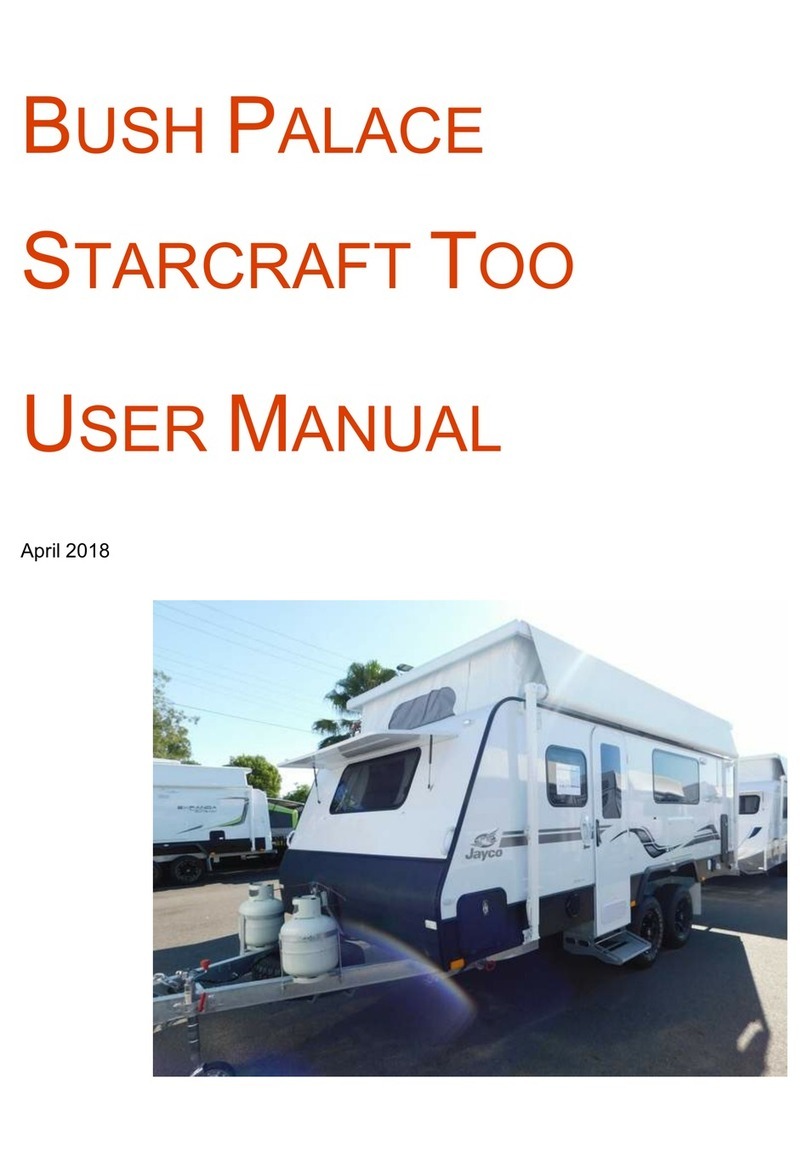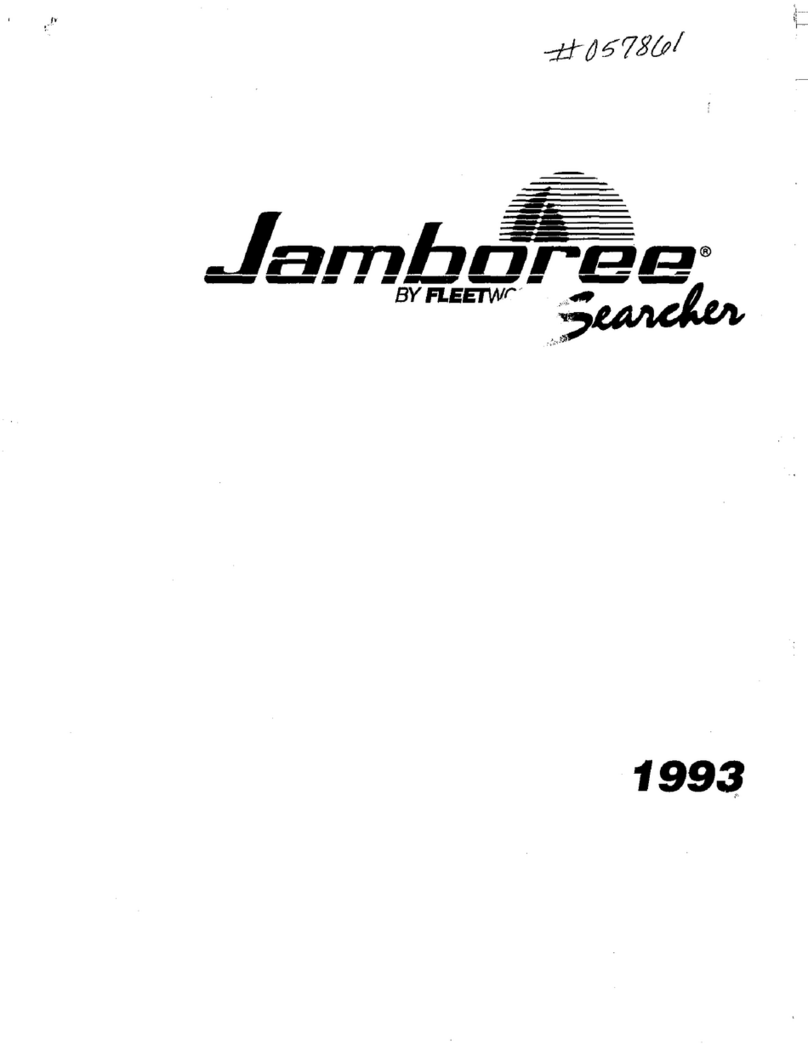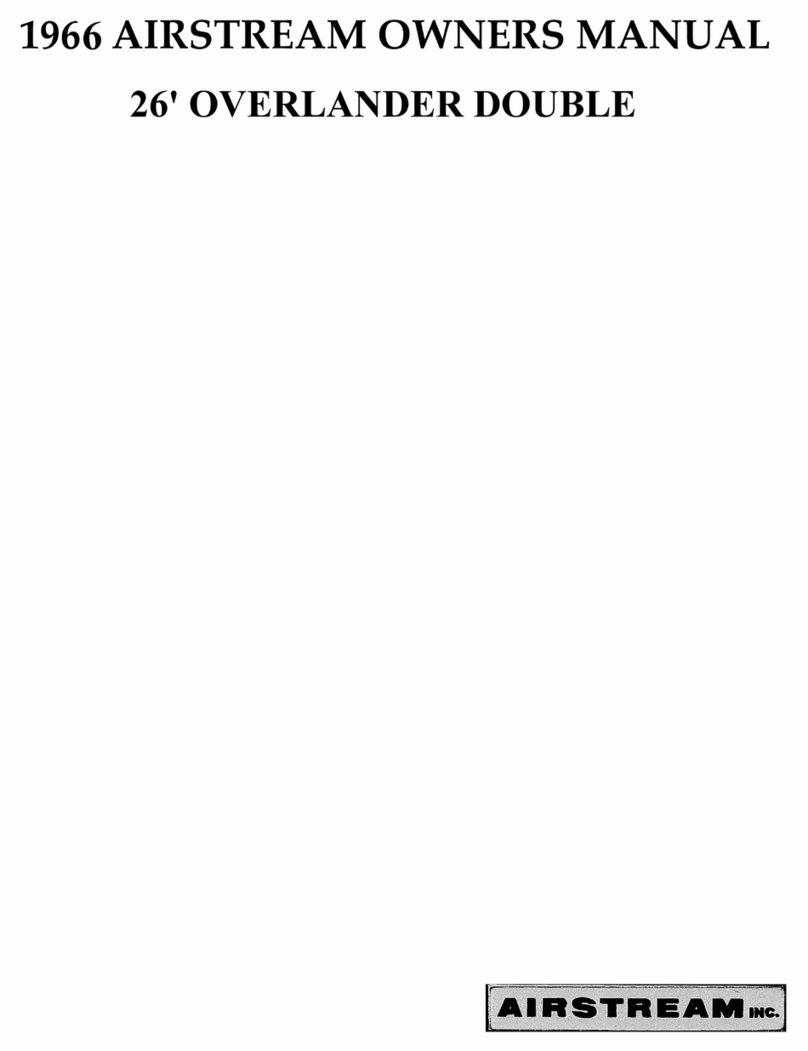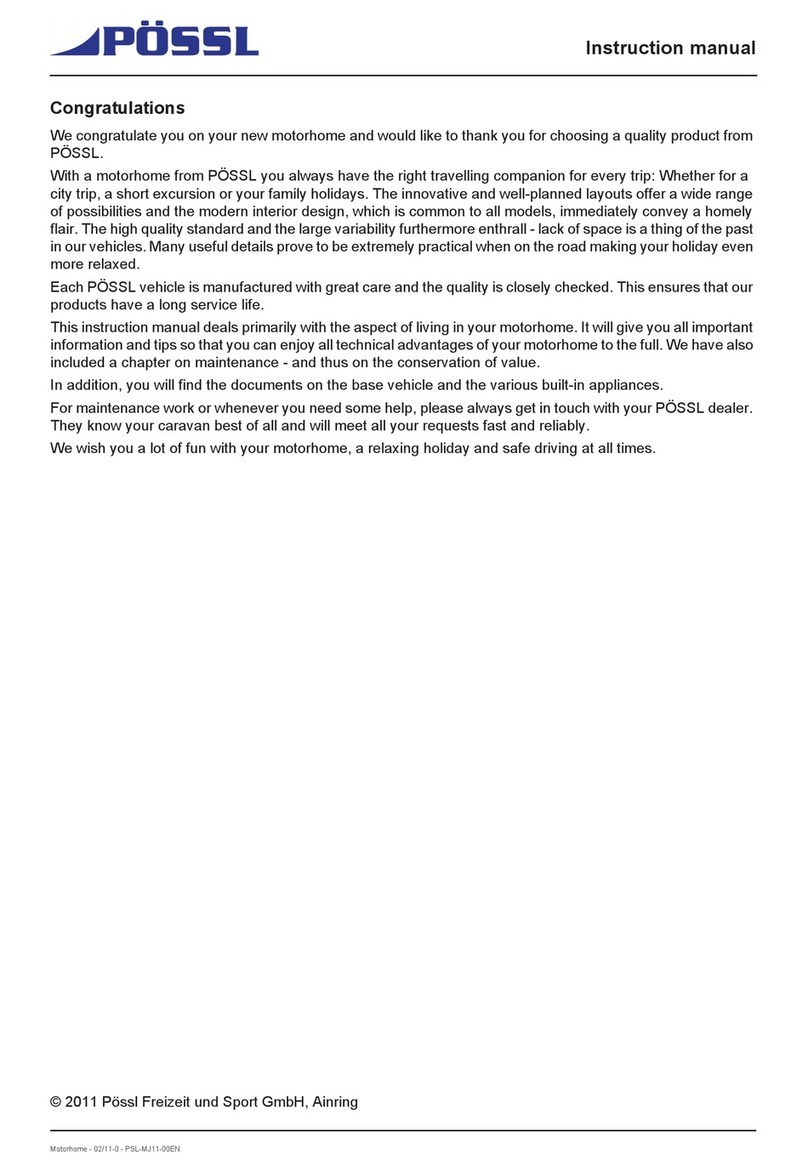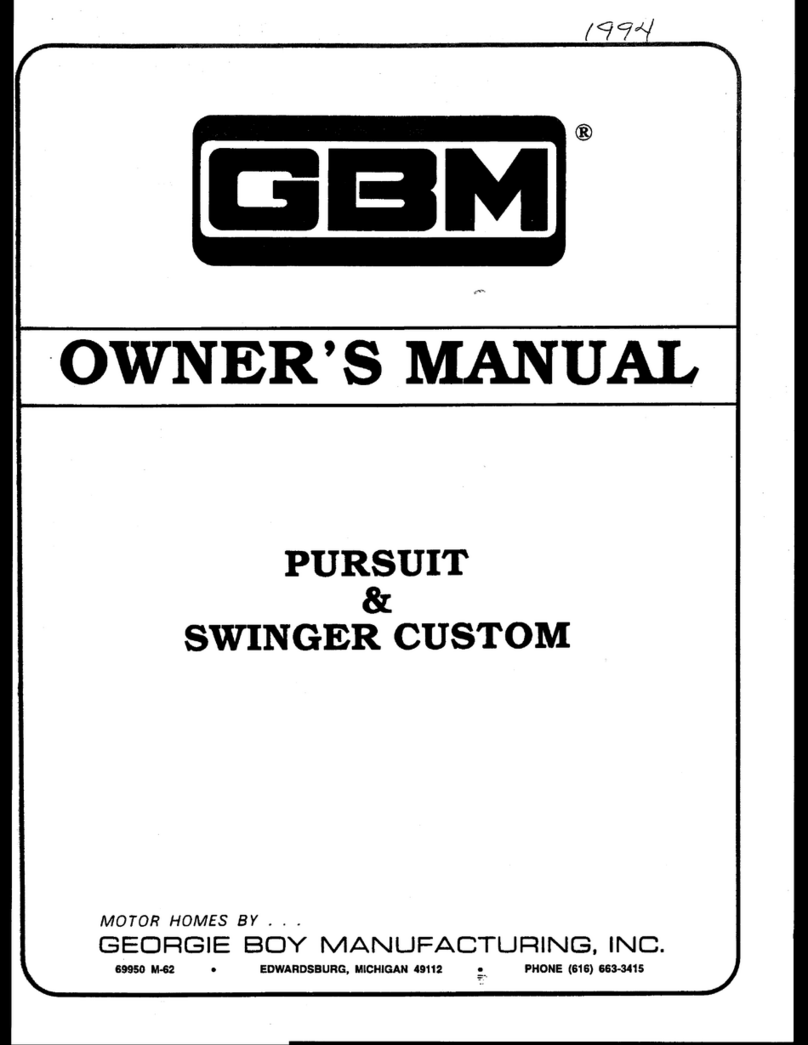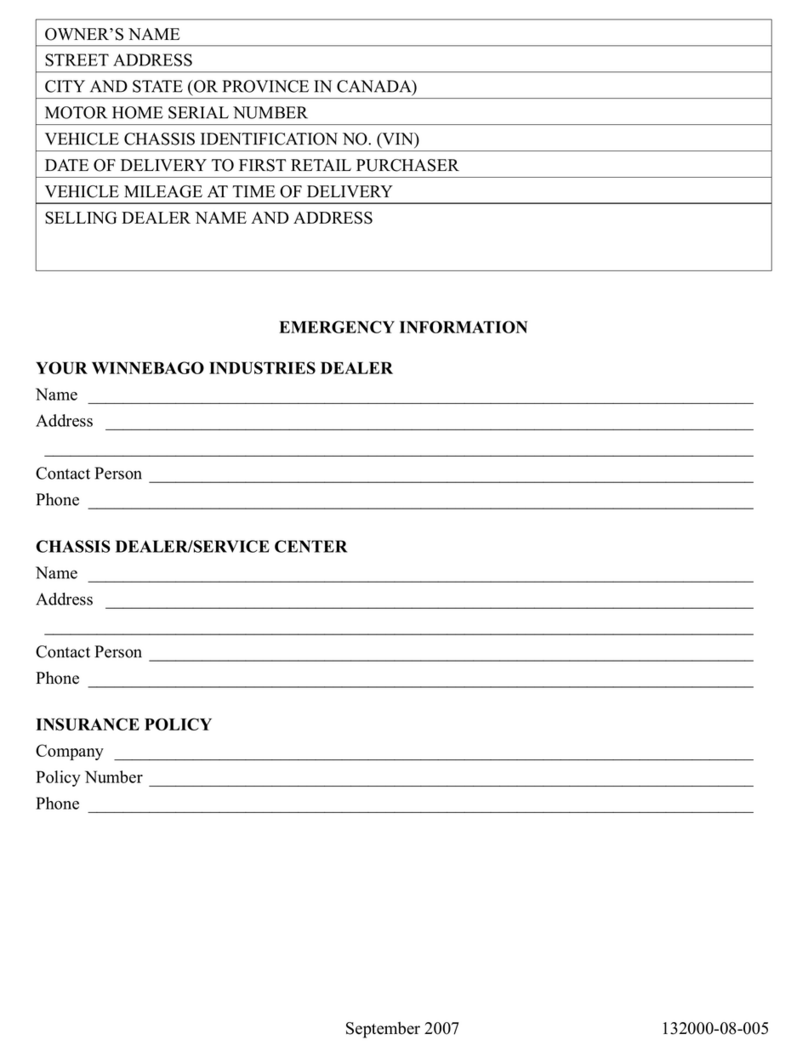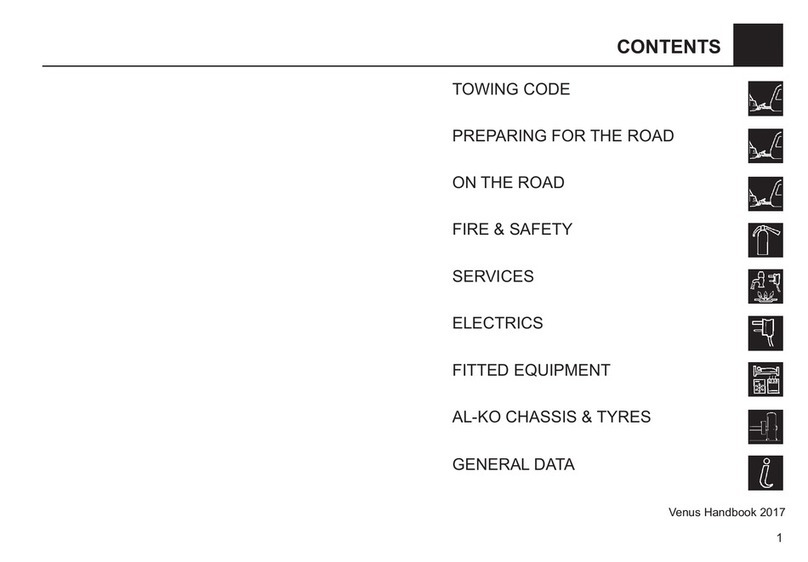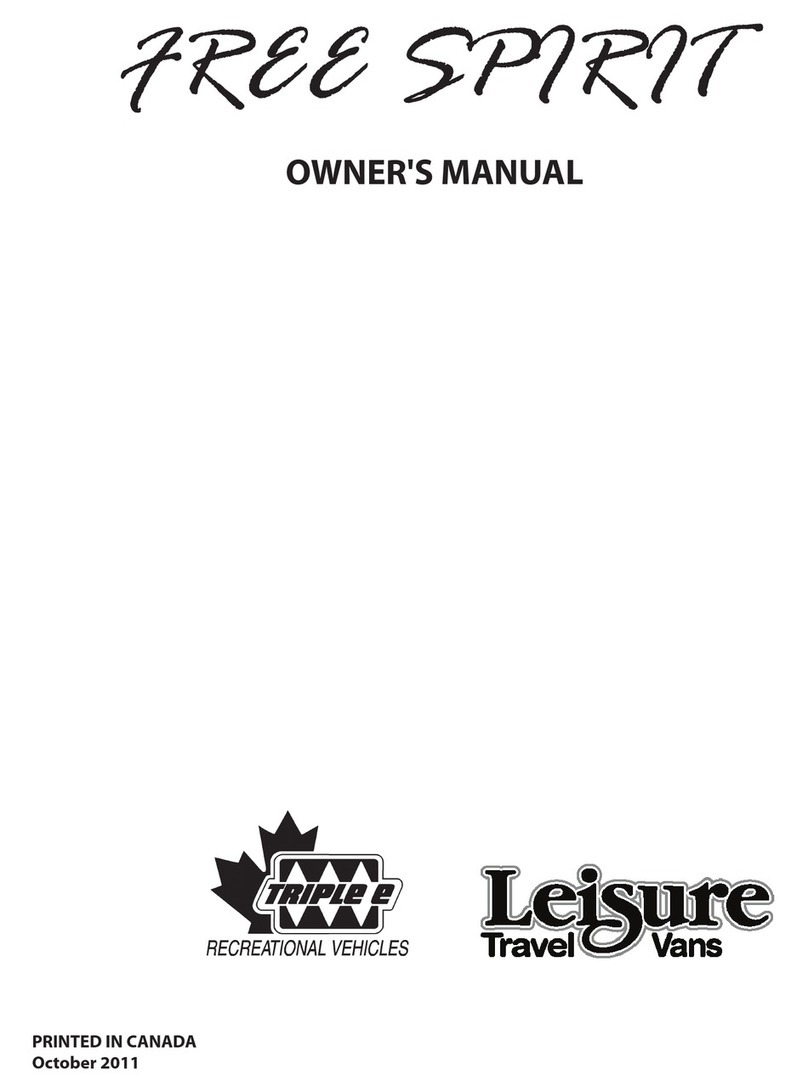
Safety
2-2 2024 Tommy Bahama Atlas
Safety Precautions
Many things can be construed as safety related, but
the most important is your common sense� If you are
careless with matches, cigarettes, ammable material,
or any other hazardous material, you surely realize
your potential for accidents is greatly increased�
You will nd many safety recommendations in this
section and throughout the manual� The following
recommendations are the ones we consider to be the
most important�
Weight Distribution
Touring coach’s have fresh water and waste water
tanks, and storage areas. It gives you great exibility in
loading. With exibility comes responsibility. If you want
to load down all the storage compartments, the amount
of uids may have to be reduced. It is a trade off so
plan wisely� Distribute your additional cargo as evenly
as possible with the heaviest objects located as low
as possible� For detailed information on loading and
weight distribution, see Loading on page 8-2�
Tire Safety
Properly maintained tires improve the steering,
stopping, traction, and load-carrying capability of your
vehicle� Be sure to read the Tire Safety information
included in your vehicle Owner/Operator Manual� In
addition, see Tire Care on page 9-5�
Electrical Appliances and Outlets
Improper handling of electrical components can be
fatal� Do not touch or use electrical components or
appliances with bare feet, while hands or feet are wet,
or while standing in water or on damp ground�
Diesel Operated Systems
The hydronic heating/hot water system and touring
coach engine run on diesel fuel� Do not start the
hydronic system or the vehicle engine in closed
garages or other enclosed or conned areas. For more
information, see What Is Carbon Monoxide on page
2-5 and see Diesel Exhaust on page 2-7�
Mold
Mold and mold spores exist throughout indoor and
outdoor environments� There is no practical way
to eliminate all mold and mold spores in the indoor
environment; however, the way to control indoor
mold growth is to control moisture; see What factors
contribute to mold growth on page 3-10�
Chemical Sensitivity and Ventilation
Chemical Sensitivity
Immediately after the purchase of your new
recreational vehicle and sometimes after it has been
closed up for an extended period of time, you may
notice a strong odor and/or experience a chemical
sensitivity� This is not a defect in your recreational
vehicle� Like your home, there are many different
products used in the construction of recreational
vehicles, such as carpet, linoleum, plywood, insulation,
upholstery, etc� Formaldehyde is also the by-product of
combustion and numerous household products, such
as some paints, coatings, and cosmetics� However,
recreational vehicles are much smaller than your home
and therefore, the exchange of air inside a recreational
vehicle is signicantly less than in a home. These
products, when new or when exposed to elevated
temperatures and/or humidity, may off-gas different
chemicals, including formaldehyde� This off-gassing,
in combination with the minimal air exchange, may
cause you to experience irritation of the eyes, nose,
and throat, as well as sometimes headache, nausea,
and a variety of asthma-like symptoms� Elderly persons
and young children, as well as anyone with a history
of asthma, allergies, or lung problems, may be more
susceptible to the effects of off-gassing�






